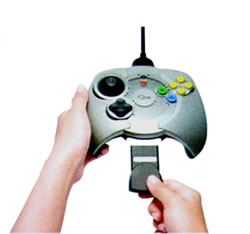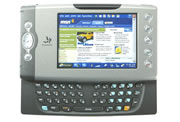UK regulator Ofcom announced yesterday that there are now over three million broadband connections in the UK as at Nov 2003. These are broadly split between DSL (55%) and cable (44%).
While we always support the promotion growth of broadband, knowing it is an essential ingredient of a digital lifestyles, we feel that Ofcom including connections speeds a low as 128 kbit/s, outside the excepted normal definition of broadband, leads the figures to be a little misleading.
Looked at in positive terms, the number of broadband households has more than doubled in the last year, with one in five of all UK homes with Internet access now having a broadband connection. This equates, in real terms, to around 10% of the UK population.
Take-up rates for ADSL connections continue to exceed cable modem connections by a factor of 3 to 1 which is fantastic news for BT. It is only when you dig into the detail of the figures, you start to understand the twisted nature of broadband in the UK. Excluding Kingston-Upon-Hull, while has a private telcom provider, nearly all of the DSL connection are provided, at some level, by BT, with only a pitiful 7,800 lines, less than 0.5% of DSL lines installed, having been Local Loop Unbundled (LUU), ie not provided by BT (see table below). We don’t define this as a competitive market.
Table: Broadband take-up at end November 2003
| Total broadband | 3,021,000 | |
| | ||
| DSL | Total | 1,674,000 |
| | BT Wholesale | 1,664,000 |
| | Kingston | 10,000 |
| Cable modem | Total | (Oftel estimate) 1,331,000 |
| | NTL | 931,000 |
| Telewest | (Oftel estimate) over 400,000 | |
| Fixed wireless access | | Over 2,500 |
| Satellite | | Over 6,000 |
| LLU | | 7,800 |
Source: Ofcom
 Back in September this year, Nintendo announced they would be creating a home games console that would sell exclusively in Chinese market. Initially to be sold in Shanghai, Guanzhou and Chengdu, this will be the first games console to be sold in China.
Back in September this year, Nintendo announced they would be creating a home games console that would sell exclusively in Chinese market. Initially to be sold in Shanghai, Guanzhou and Chengdu, this will be the first games console to be sold in China. bSquare have launched their Power Handheld in the UK in a deal with Vodaphone. The unit, which had various code names including “Maui” and “Power Reference Design”, runs Microsoft CE.NET on its large VGA resolution colour screen and a thumb-driven QWERTY keyboards that extends from its side.
bSquare have launched their Power Handheld in the UK in a deal with Vodaphone. The unit, which had various code names including “Maui” and “Power Reference Design”, runs Microsoft CE.NET on its large VGA resolution colour screen and a thumb-driven QWERTY keyboards that extends from its side.